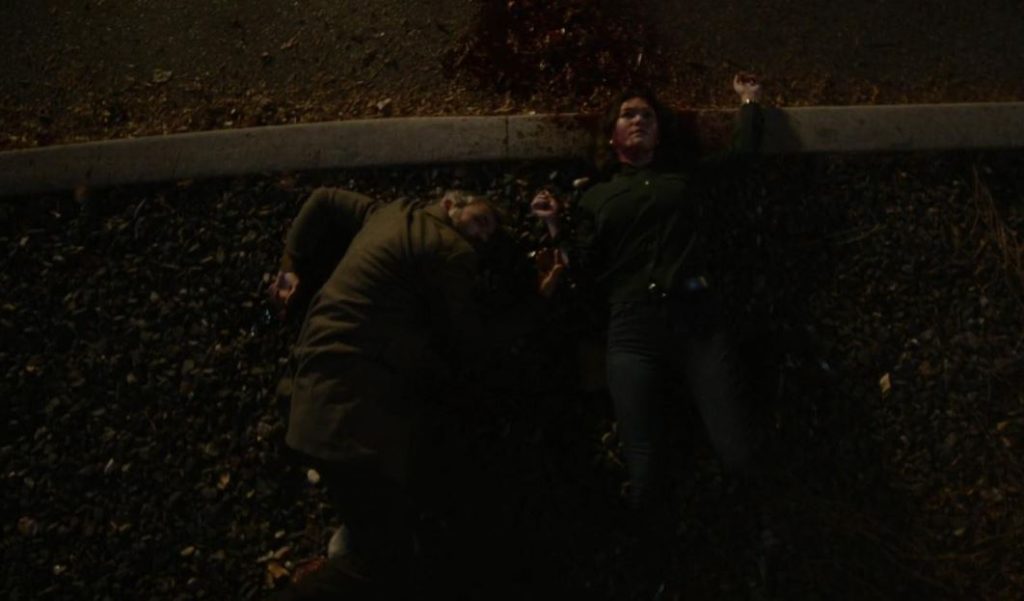The original Orphan was a “real slice of trash deserving of a long shelf life,” as our own Matt Cale wrote in his excellent review of the crafty and relentlessly entertaining 2009 thriller. “Or at least until Esther rises from her watery grave for a sequel.” Thirteen years later, we finally have that sequel (actually a prequel) to the cult classic that now holds up every bit as well as Matt predicted it would.
The inevitability of the hypothetical sequel’s inferiority, predicated on the fact that the big surprise from the original film is already known to the audience, would only seem to be doubled by the prequel approach. After all, what point could there be in rehashing the already established backstory of Esther’s escape from the Saarne Institute and subsequent murder of the first family to unwittingly adopt her as their child? Indeed, the first half-hour or so suggests nothing more than the muted thrills of a well-executed but thoroughly inessential retread. Once we get to Esther’s new home, though (after an exhilarating escape sequence), it soon becomes clear that this movie has plenty of tricks up its own sleeve.

Beyond the famous reveal that Esther (Isabelle Fuhrman) is actually a dwarf posing as a child, much of the intrigue in the original Orphan came from the family dynamic and the troubles between the Colemans (Vera Farmiga and Peter Sarsgaard) that Esther was able to exploit to her will. First Kill leans into this as well, but adds an even darker dimension to the family unit that is too good to spoil here. Julia Stiles steps into the suspicious mom role with aplomb, and Rossif Sutherland (lesser-known son of Donald and half-brother of Kiefer) is equally good as the real target of Esther’s psychopathic desires, the father figure she wishes to seduce so that she may replace her adoptive mother.
No one in the movie is better than Fuhrman, however, and a lot of its success (with all due respect to the fiendishly clever story and artful direction and cinematography) rests on her very capable shoulders. Actually only 12 years old in the original movie, the now 25-year-old Fuhrman recaptures the essence of Esther perfectly, with the assistance of some excellent practical effects (using body doubles and forced perspective to de-age her without the use of CGI).

Many already consider Orphan: First Kill superior to its predecessor. While I am always hesitant to go that far (not every franchise extension can be The Dark Knight or Mad Max: Fury Road, let alone the sheer perfection that is Gremlins 2: The New Batch), this is, at the very least, a worthy companion piece to one of the nastiest, gnarliest, most purely fun thrillers of the past few decades. Esther lives, at least for this unexpected but very welcome return.